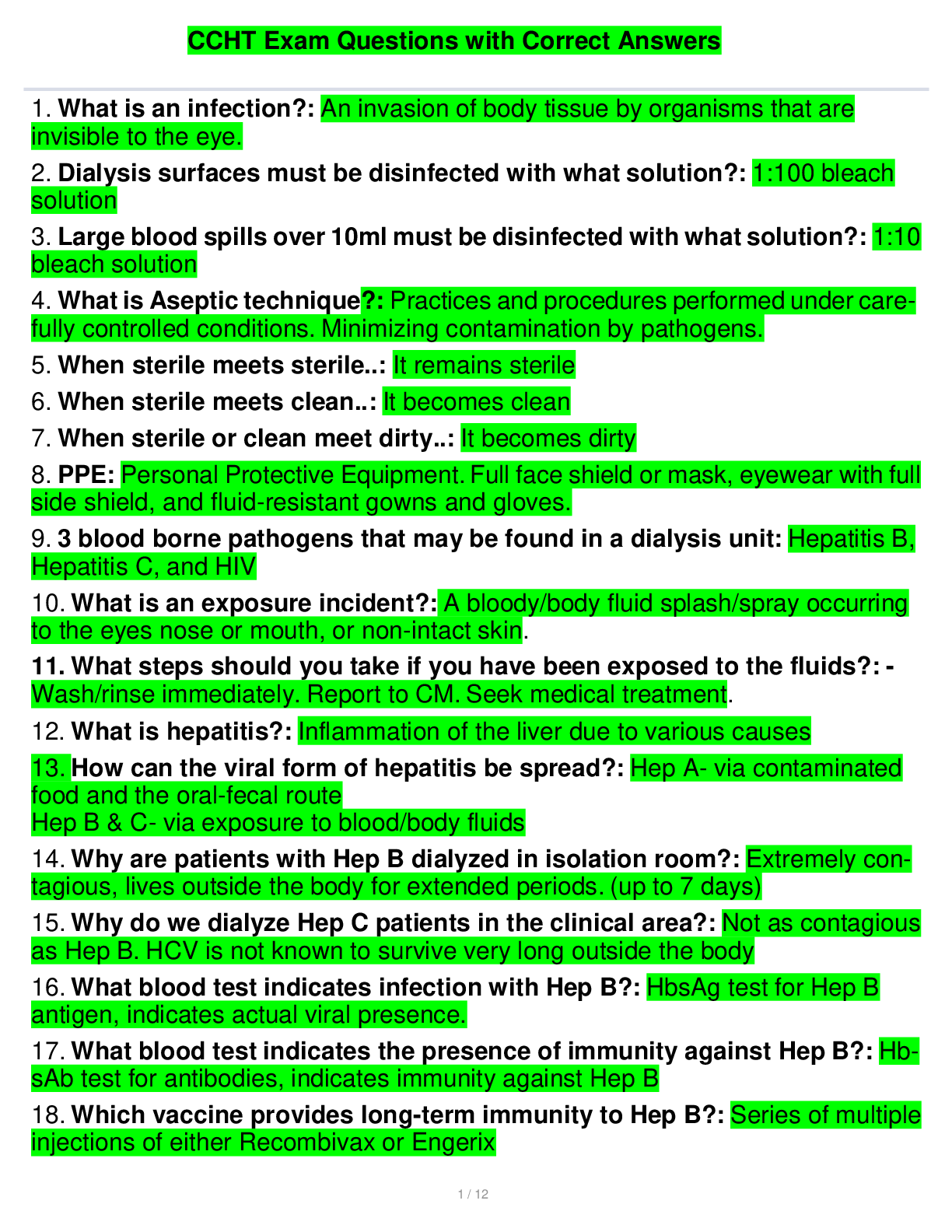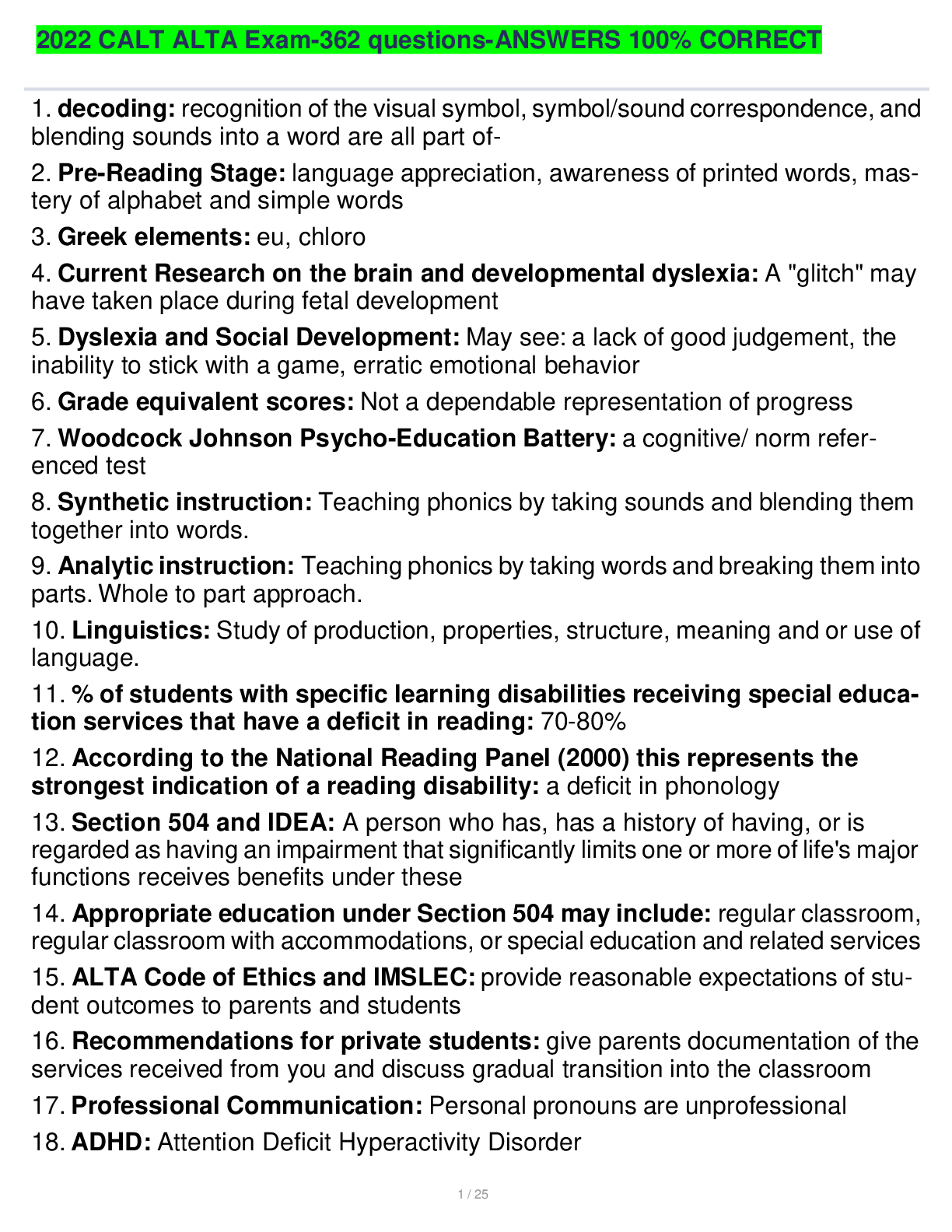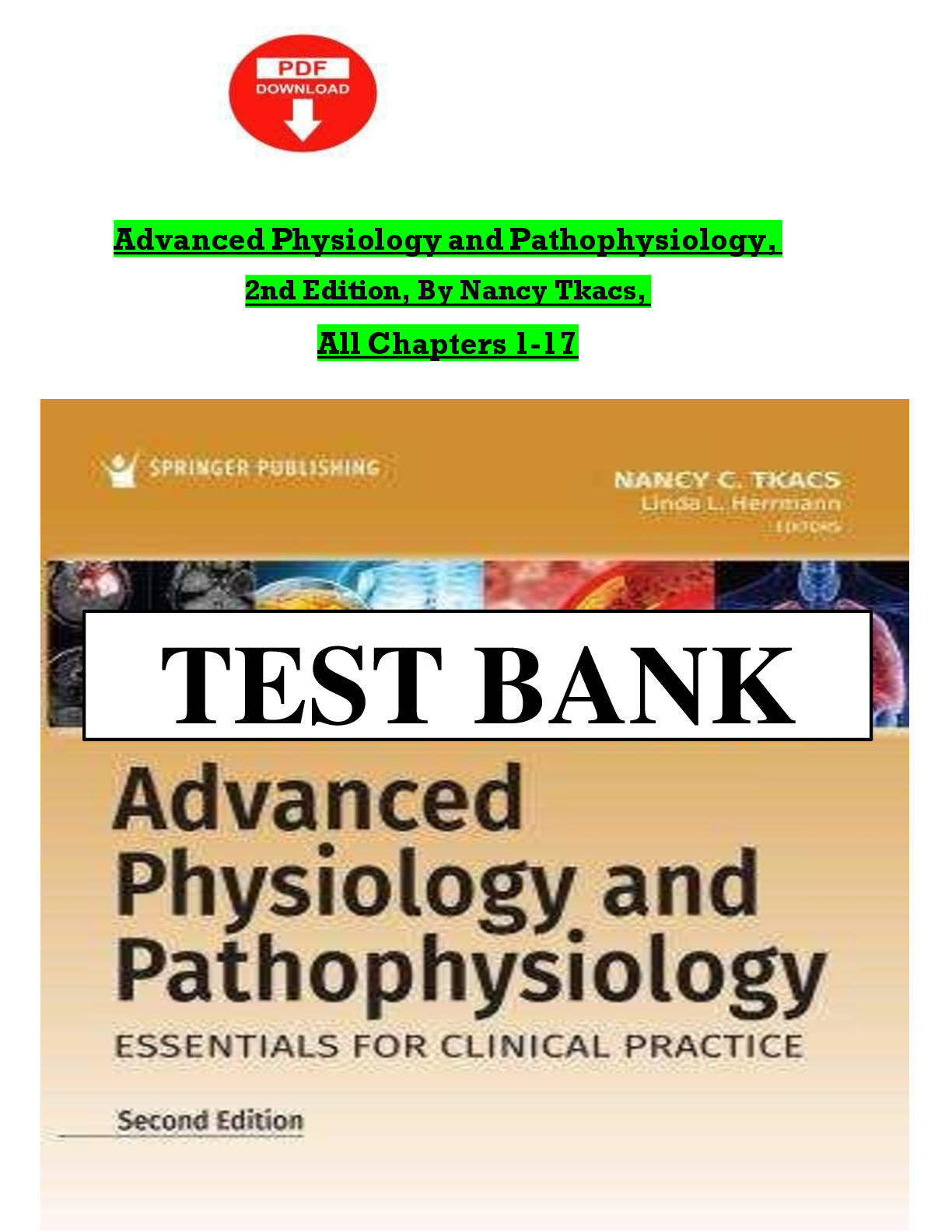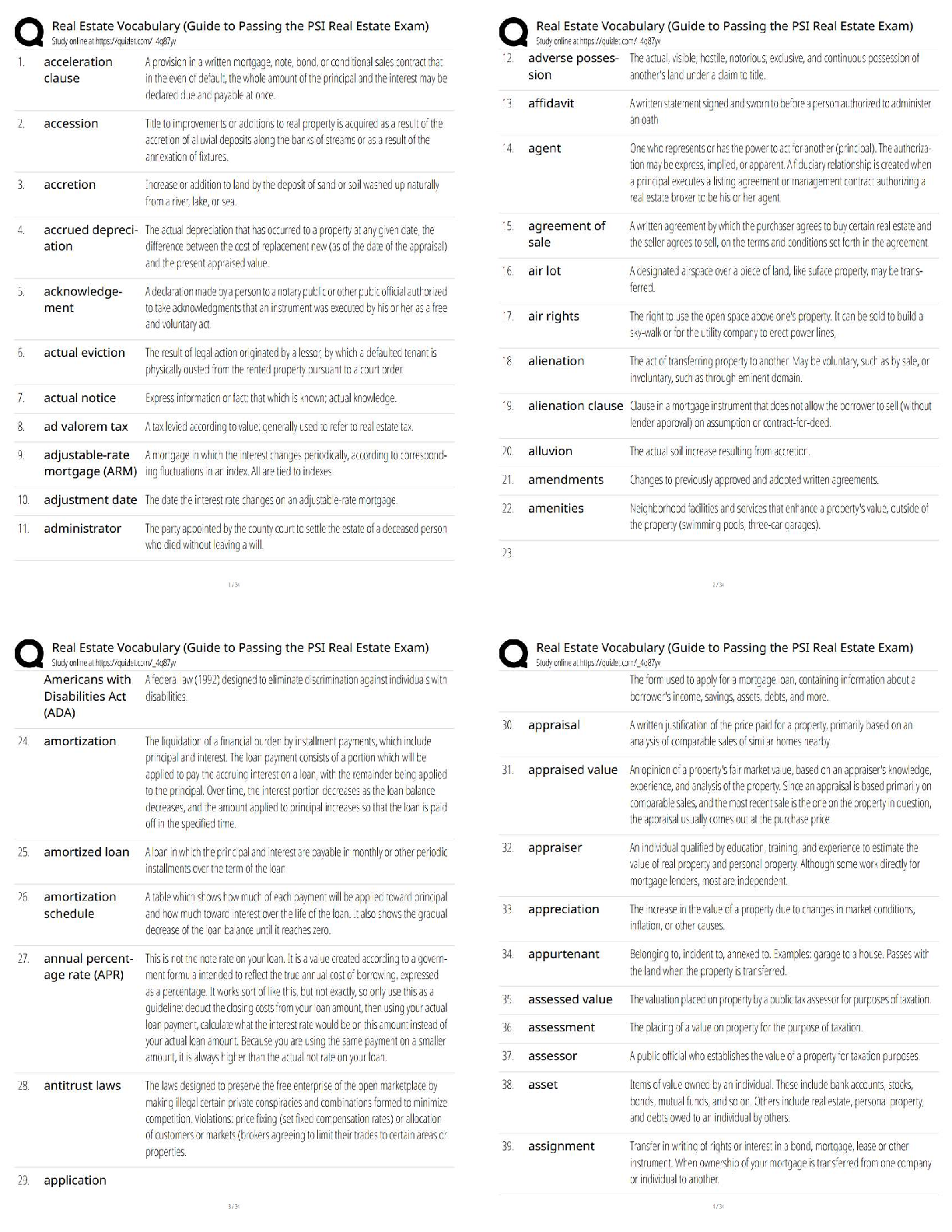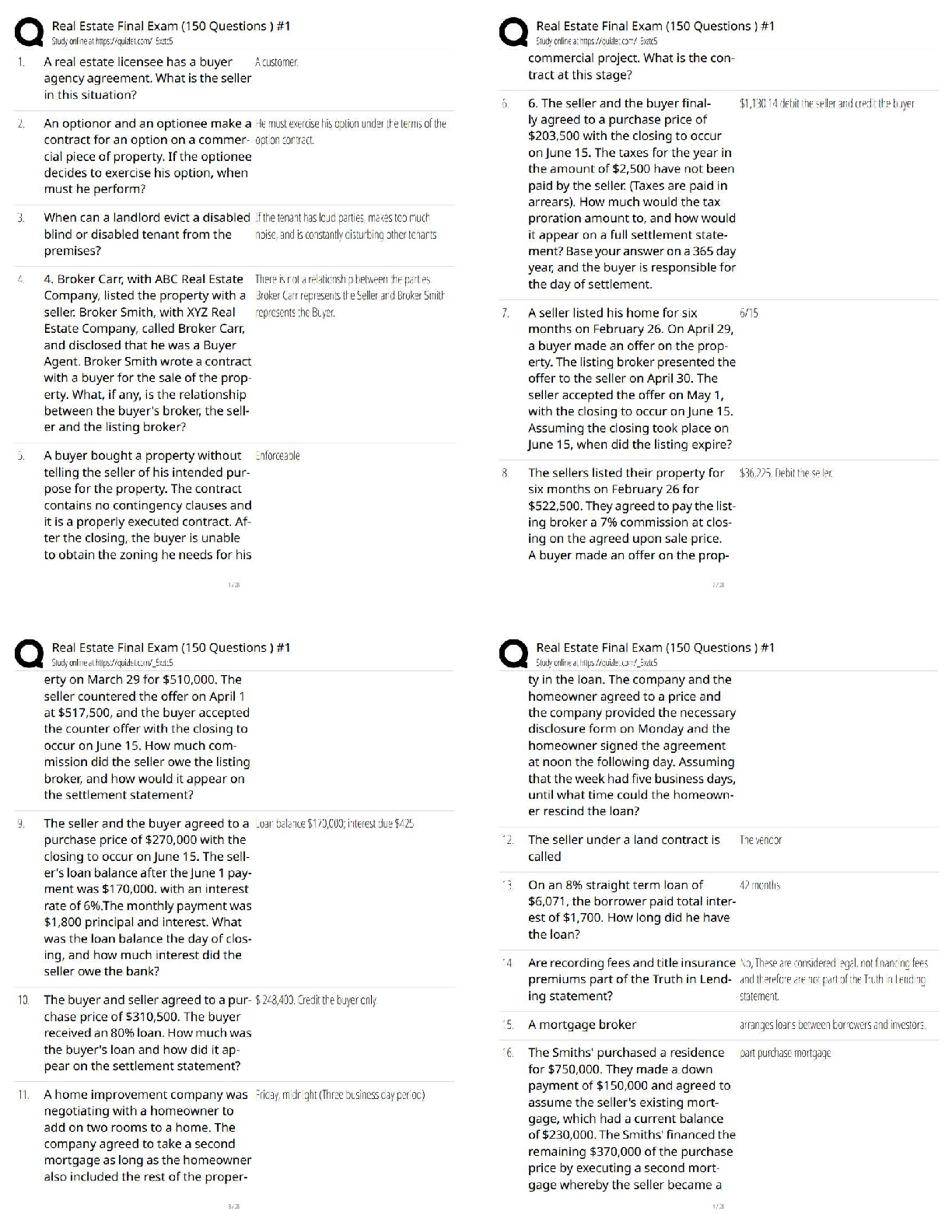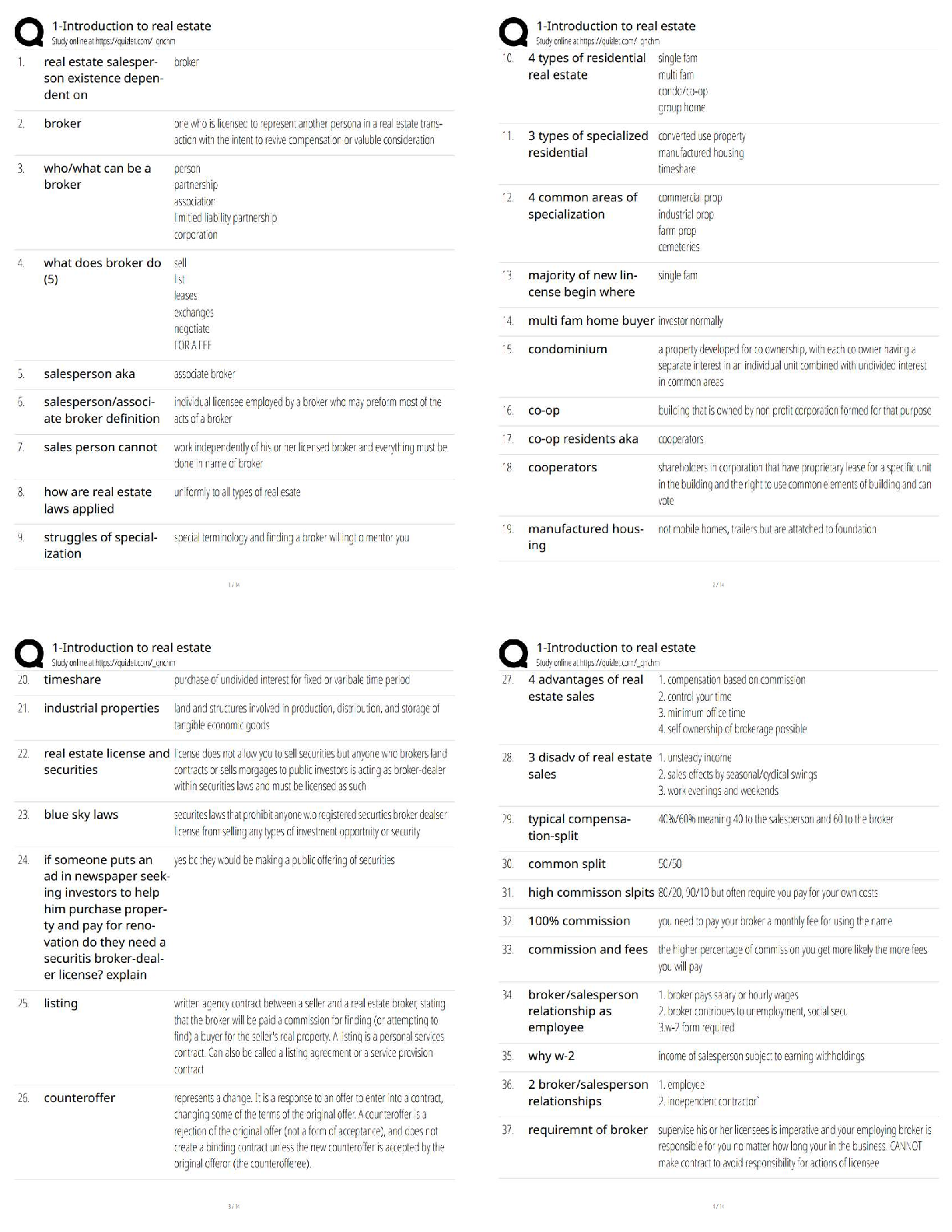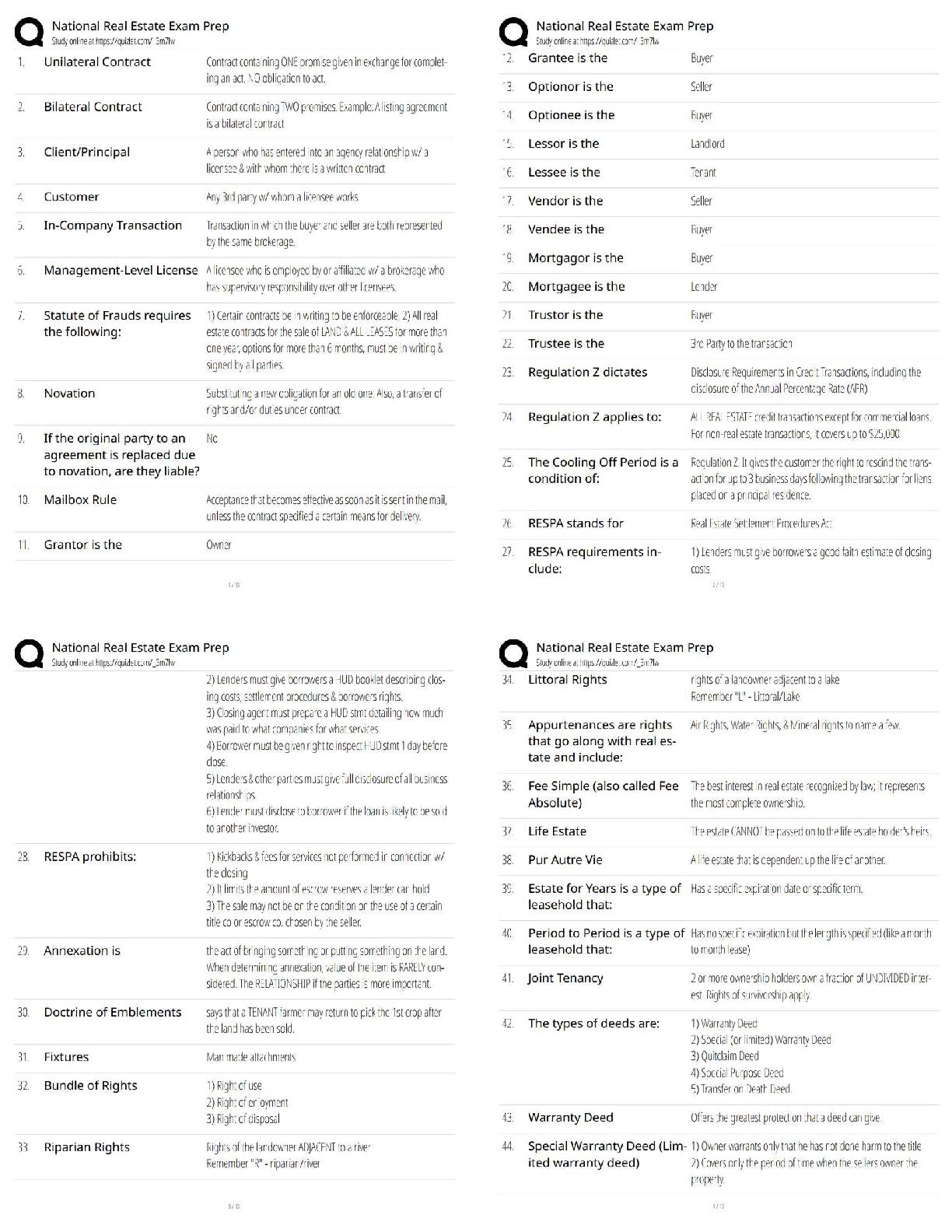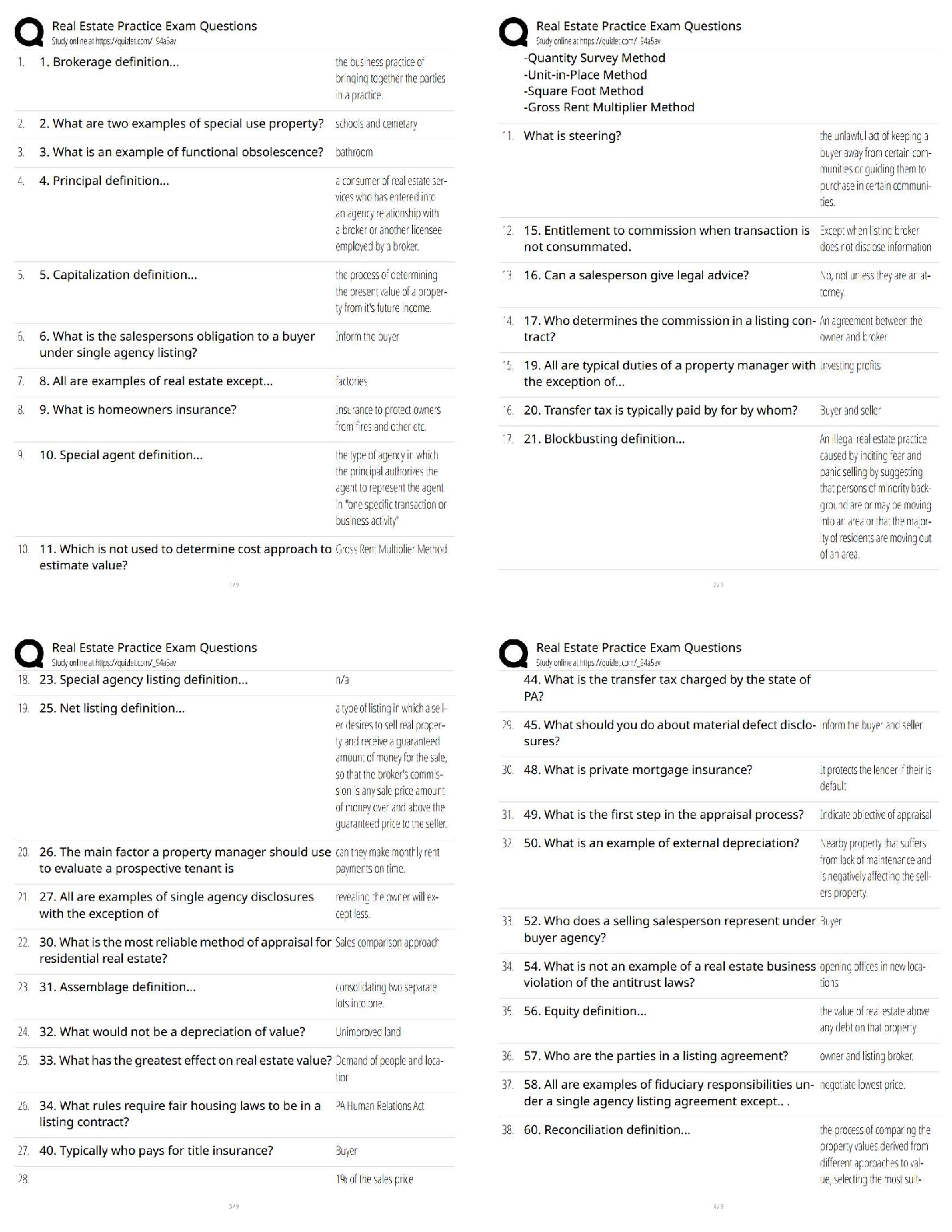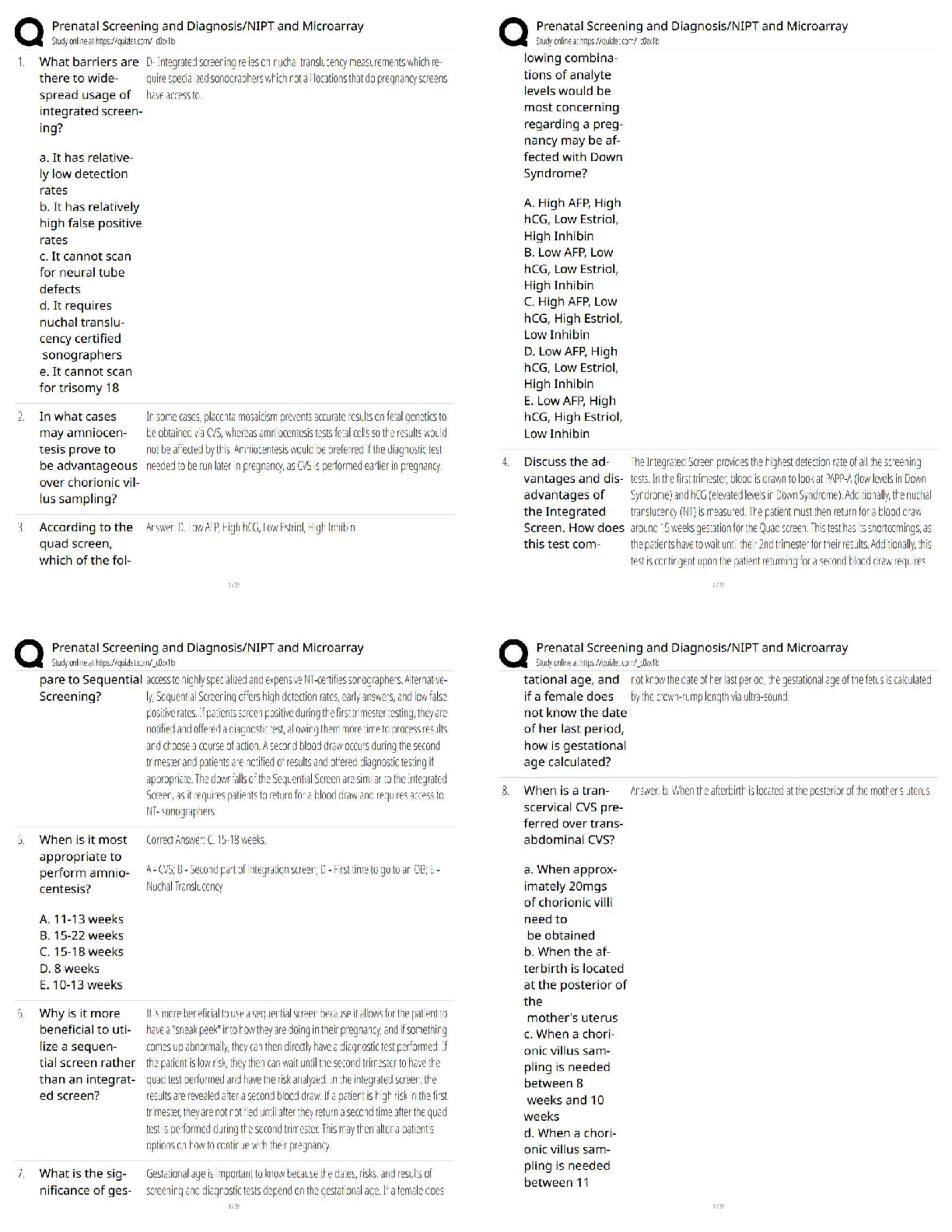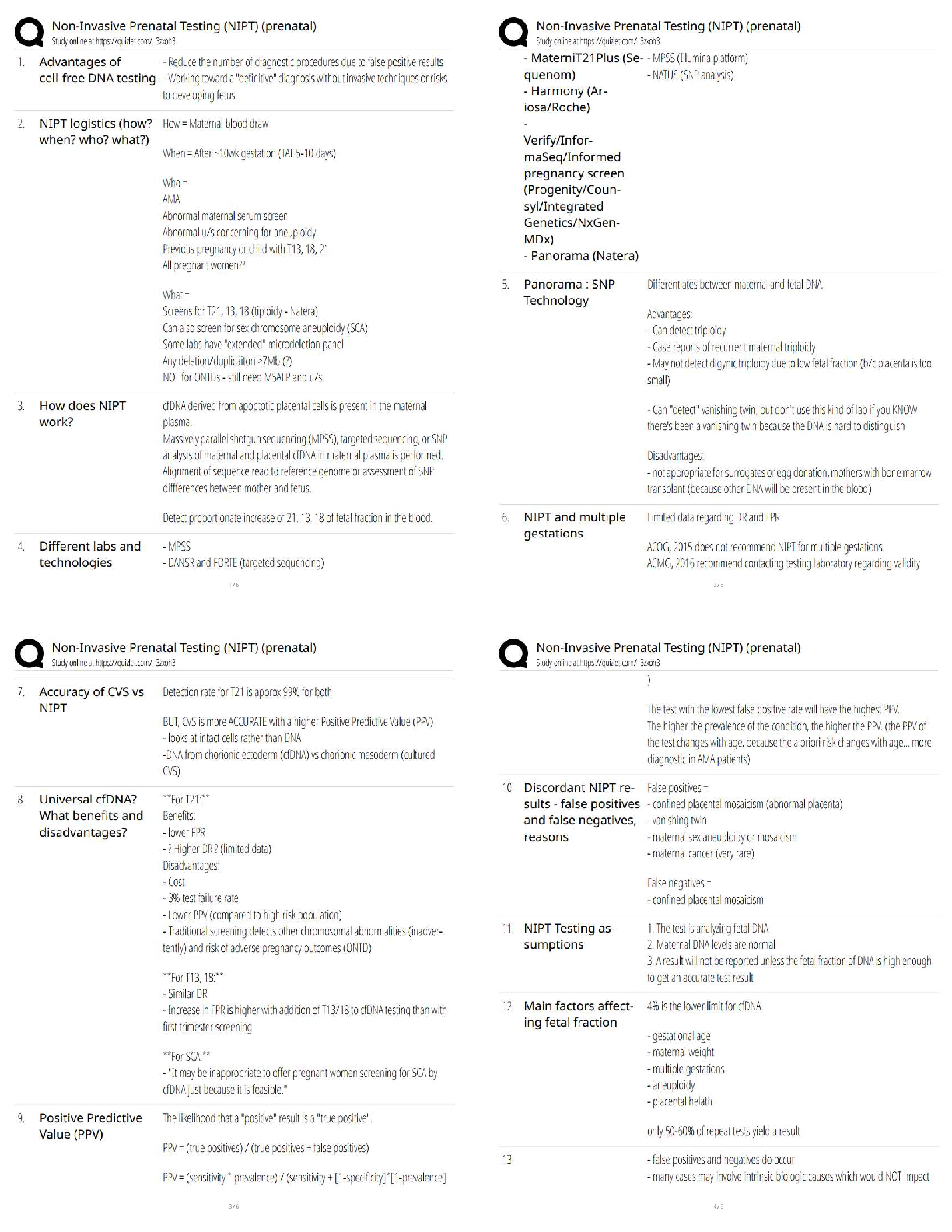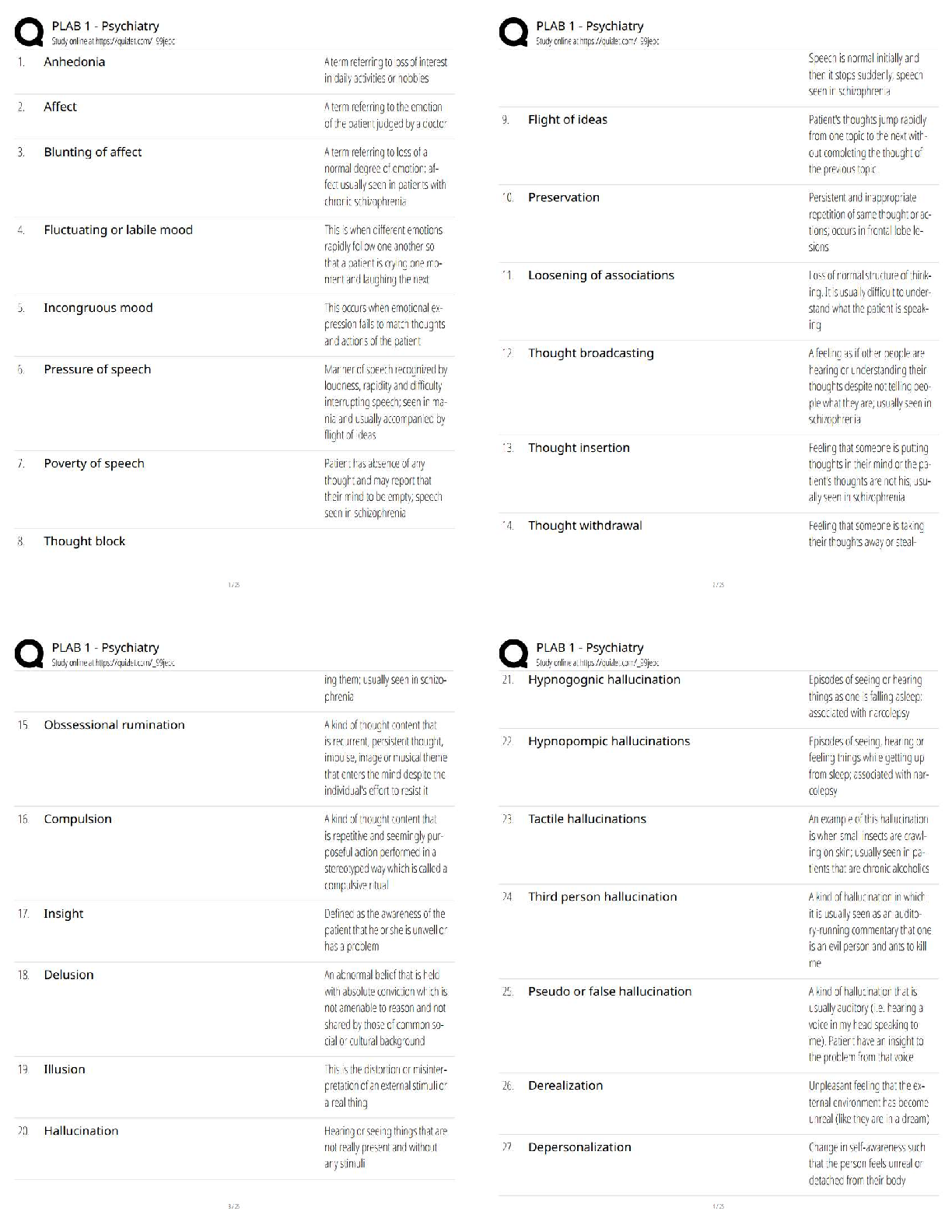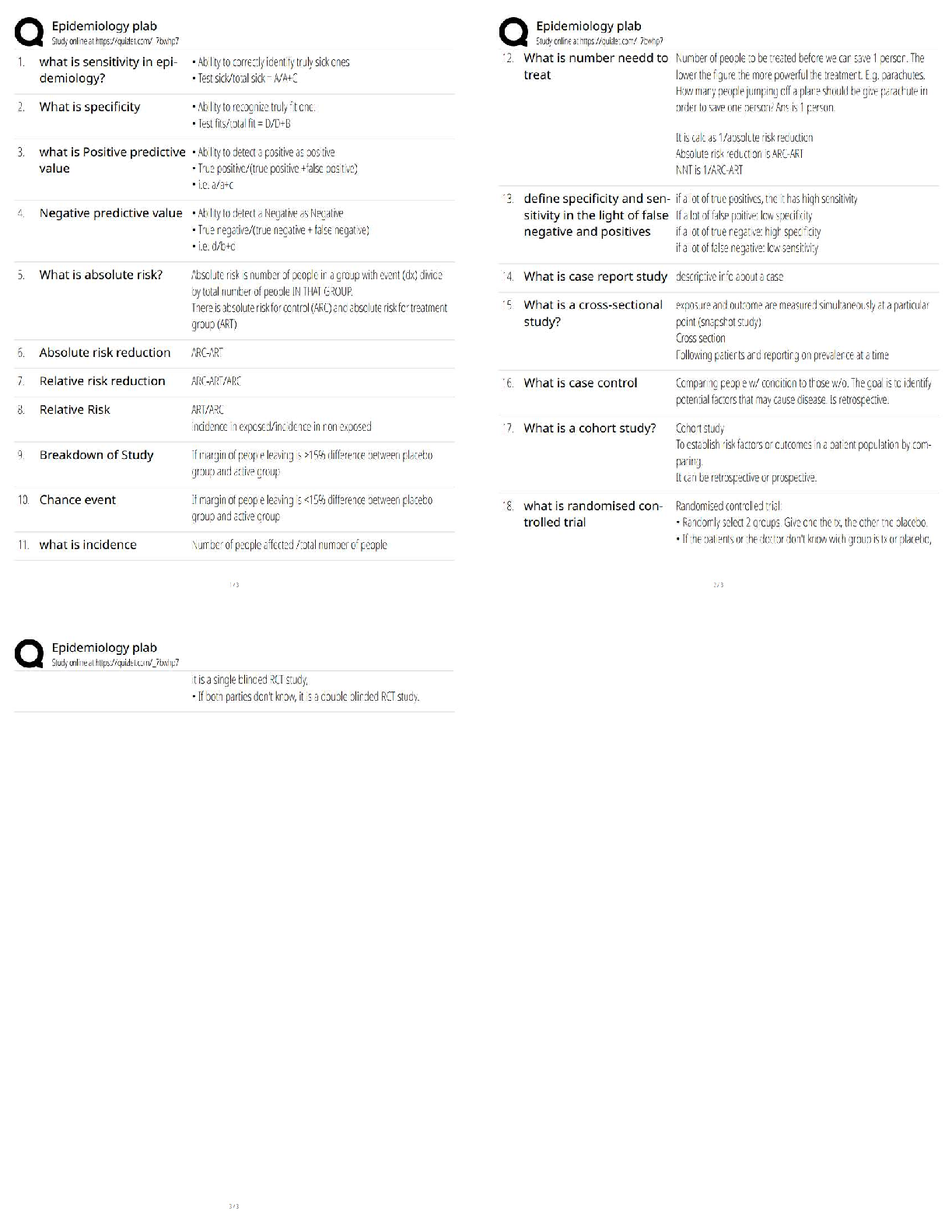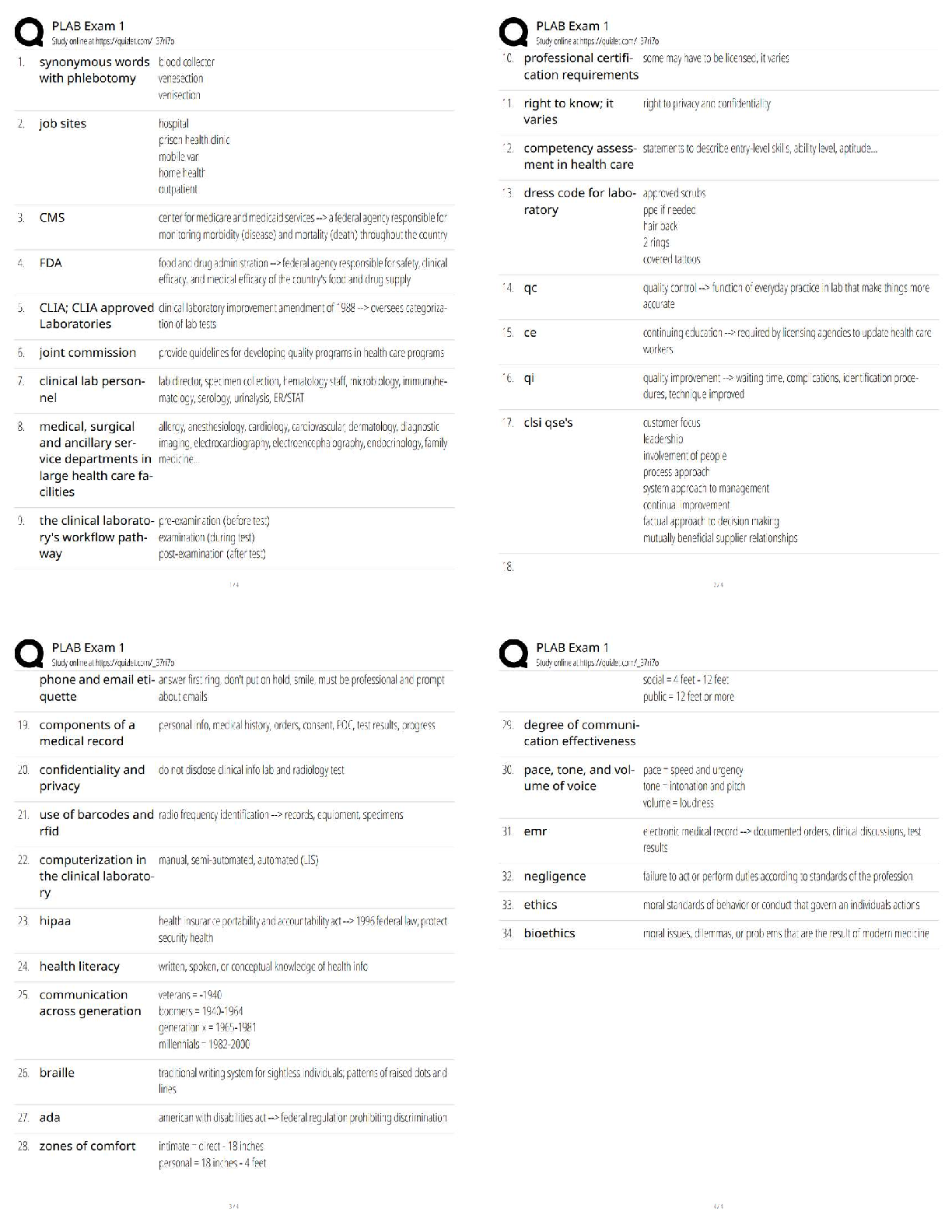Literary Studies > QUESTIONS & ANSWERS > AP Euro: Important People Latest Updated 2022 (All)
AP Euro: Important People Latest Updated 2022
Document Content and Description Below
AP Euro: Important People Latest Updated 2022 Girolamo Savonarola ✔✔(1452-1498) Dominican friar, attacked government of Florence (Lorenzo de' Medici), corruption of Pope Alexander VI, became re ... ligious leader of Florence, eventually excommunicated and executed by pope, shows that common people did not share worldly outlook of elite Petrarch ✔✔(1304-1374) thought he was living at the start of a new era, new age of intellectual achievement, father of humanism Lorenzo Valla ✔✔(1406-1457) humanist, defended pleasures of senses as the highest good, proved church documents false Giorgio Vasari ✔✔(1511-1574), art historian Donatello ✔✔(1386-1466) statues express an appreciation for the variety of human nature, revived classical figure Leonardo da Vinci ✔✔(1452-1519) contributed to modern concept of artist as an original thinker, saw art from a scientific POV and science from an artistic POV, true "Renaissance man" Castiglione ✔✔wrote The Courtier, sought to fashion the young gentleman into the courtly ideal, trained in physical, spiritual, intellectual and artistic pursuits Laura Cereta ✔✔(1469-1499) humanist, had to choose between marriage or a life of study Niccolo Machiavelli ✔✔(1469-1527), wrote The Prince, showed how a ruler should gain, maintain and increase his power, concludes that humans are inherently selfish, combine qualities of fox andlion, two basic ideas: one permanent social order reflecting God's ideals cannot be established and politics has its own laws and ought to be a science Thomas More ✔✔(1478-1535), wrote Utopia, presents a revolutionary view of society, believed society's flawed institutions were responsible for corruption and war, necessary to reform social institutions that molded the individual Erasmus ✔✔(1466-1536), believed education was the means to reform, and that Christianity is Christ's life, humanist Martin Luther ✔✔(1483-1546), articulated the widespread desire for reform of church and deep yearning for salvation, very conscientious friar, but doubted the value of the monastic life, troubled by sale of indulgences, writes 95 Theses and launches Protestant Reformation John Tetzel ✔✔friar appointed to sell indulgences Ulrich Zwingli ✔✔(1484-1531), introduced Protestant Reformation in Switzerland, convinced that Christian life rested on the Scriptures John Calvin ✔✔(1509-1564) developed Calvinism, believed in predestination-God selects certain people for salvation and condemns the rest, emphasized the absolute sovereignty and omnipotence of God and total weakness of humanity, held Genevans to a high standard of morality, emphasized aggressive, vigorous activism John Knox ✔✔(1505-1572), dominated movement for reform, persuaded Scottish parliament to enact legislation ending papal authority Ignatius Loyola ✔✔(1491-1556) founded the Jesuit order, goal to help souls, spread Christian ideals through educationPrince Henry "the Navigator" ✔✔(1394-1460) established a school for the study of geography, sent expeditions down the coast of Africa Christopher Columbus ✔✔discovered the New World, cruel and ineffective governor of Spain's Caribbean colony, sought a more direct route to the East Indies, laid the foundation for Spanish imperial administration in the Canary Islands Ferdinand Magellan ✔✔(1480-1521), commissioned by Charles V to find a direct route to the spices of Molucca off the southeast coast of Asia, proved the earth was round and much larger than Columbus had estimated Hernando Cortes ✔✔(1485-1547), conquered the Aztec Empire, subjugated northern Mexico Francisco Pizarro ✔✔(1470-1541), conquered the Inca Empire in Peru, established the Spanish viceroyalty in Peru Michel de Montaigne ✔✔(1533-1592), introduced early modern skepticism, developed the essay to express his thoughts and ideas William Shakespeare ✔✔(1564-1616), most famous playwright of all time, original characters, great understanding of human psychology, diverse plots, unexcelled gift for language, appreciated classical culture, individualism and humanism Peter Paul Rubens ✔✔(1577-1640), representative of the baroque painters, colorful style characterized by animated figures, melodramatic contrasts and monumental size, enormously successful Richelieu ✔✔(1585-1642), ruled as regent in place of Louis XIII, set in place the cornerstone of French absolutism, reshuffled royal council to curb the power of the nobility, established intendant system—intendants appointed directly by the monarch, solely responsible to him, enforced royalorders and weakened the power of the nobility, established French Academy to standardize language Jean-Baptiste Colbert ✔✔(1619-1683), appointed minister of finance by Louis XIV, applied system of mercantilism to France, believed France should be self-sufficient, attempted to accomplish this through state support of industries, created a powerful merchant marine to transport French goods, hoped to make Canada part of a vast French empire Moliere ✔✔(1622-1673), French playwright, plays that followed classical models but were based on careful social observation, made bourgeoisie the butt of his ridicule Jean Racine ✔✔(1639-1699), plays that analyzed the power of love, based on Greek and Roman legends, focused on the conflict of good and evil [Show More]
Last updated: 3 years ago
Preview 1 out of 17 pages
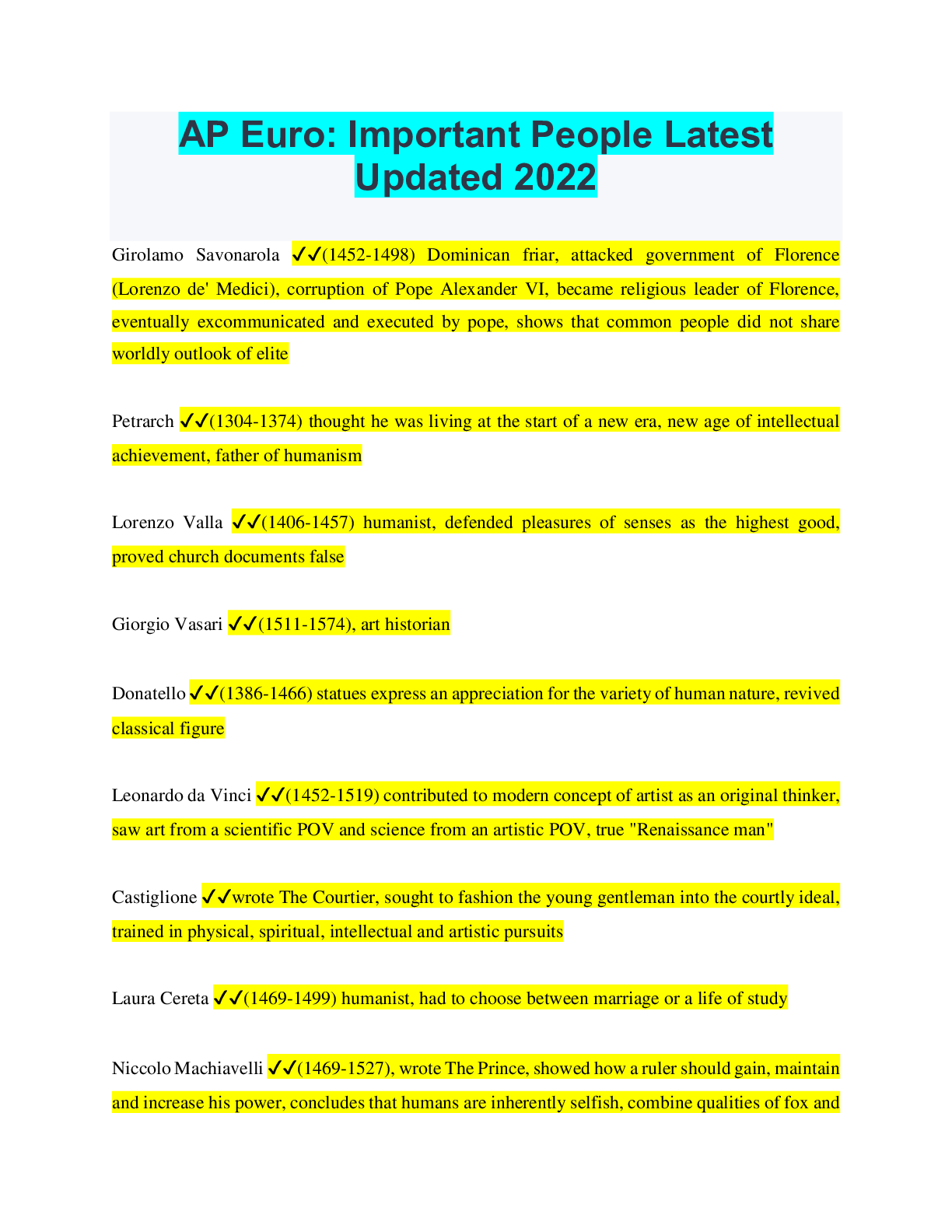
Buy this document to get the full access instantly
Instant Download Access after purchase
Buy NowInstant download
We Accept:

Also available in bundle (1)
Click Below to Access Bundle(s)
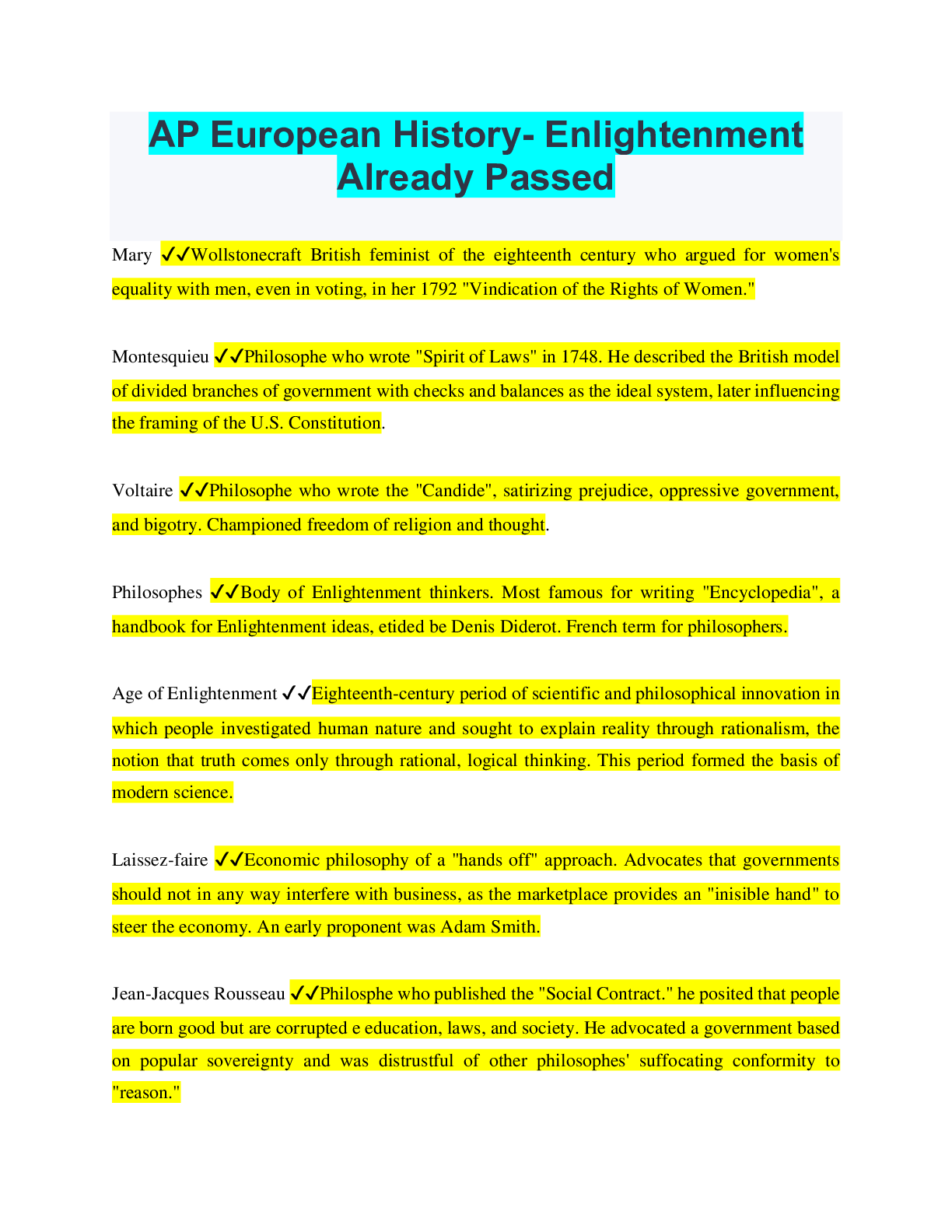
AP European History Exam FULL SOLUTION PACK(ALL AP European History Exams AND STUDY QUESTIONS ARE HERE ,ALL ANSWERED CORRECTLY)
AP European History- Enlightenment Already Passed AP European History- French Revolution Questions and Answers Graded A+ AP European History – Renaissance Already Passed AP European History E...
By Alphascore 3 years ago
$15
20
Reviews( 0 )
$7.50
Can't find what you want? Try our AI powered Search
Document information
Connected school, study & course
About the document
Uploaded On
Nov 14, 2022
Number of pages
17
Written in
All
Additional information
This document has been written for:
Uploaded
Nov 14, 2022
Downloads
0
Views
189

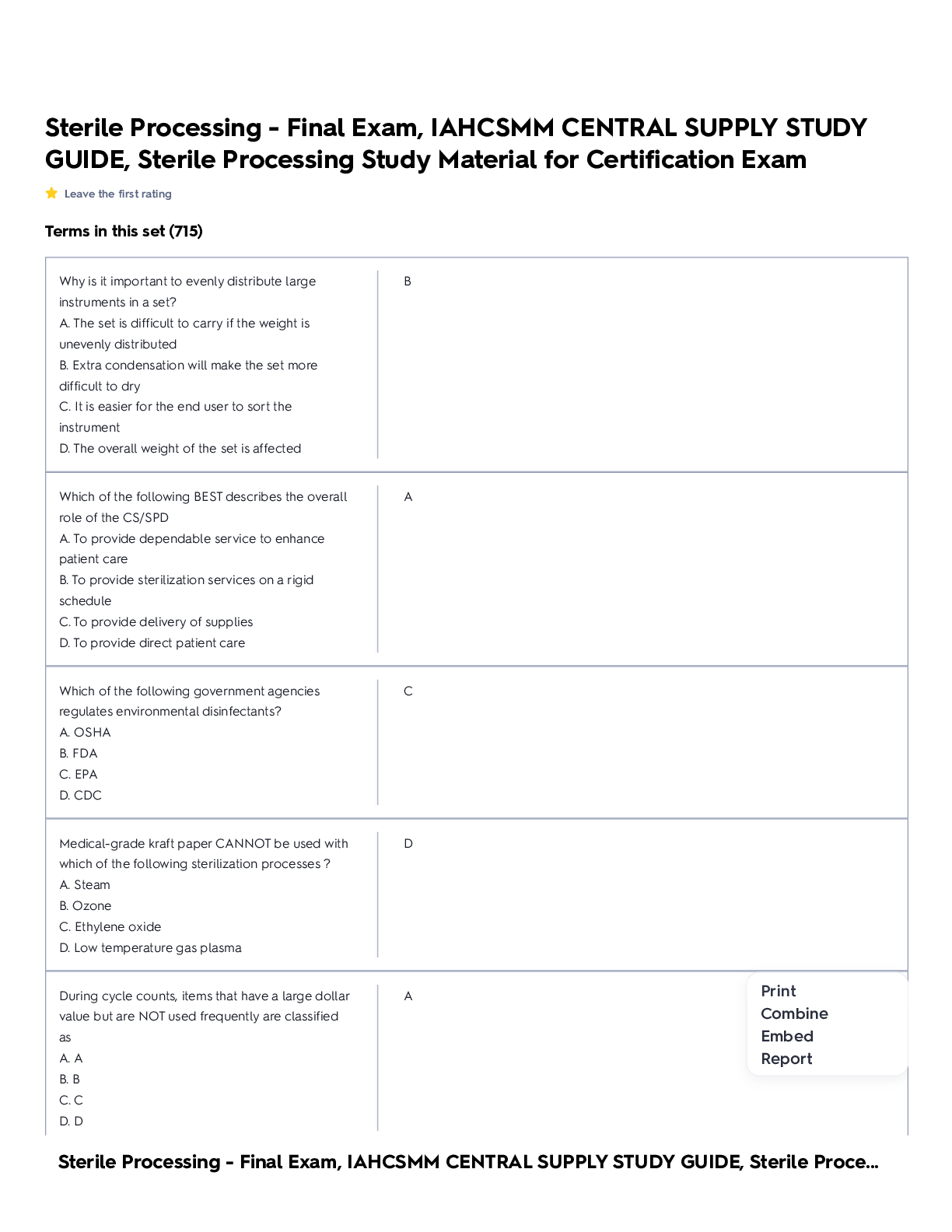

 with Complete Solution.png)
 Career Information with Complete Solution.png)


 for E-6 Career Information_watermark.png)
